Recommendation Letter for Graduate School Samples
-
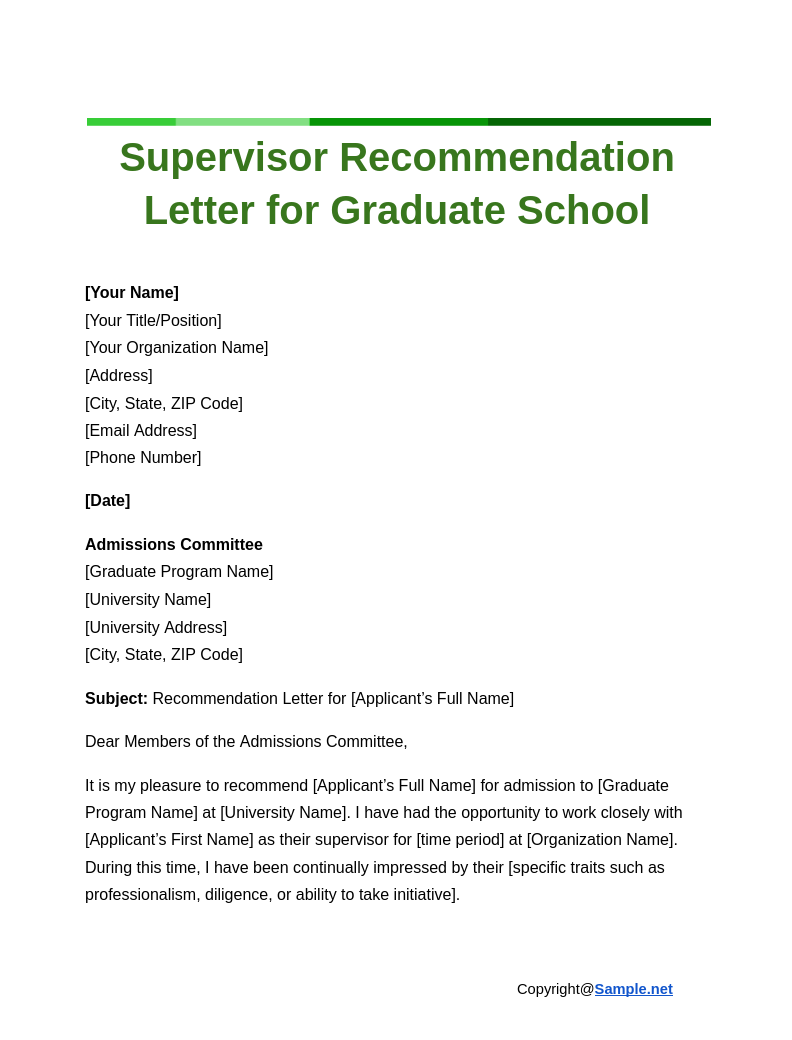
Supervisor Recommendation Letter for Graduate School
download now -
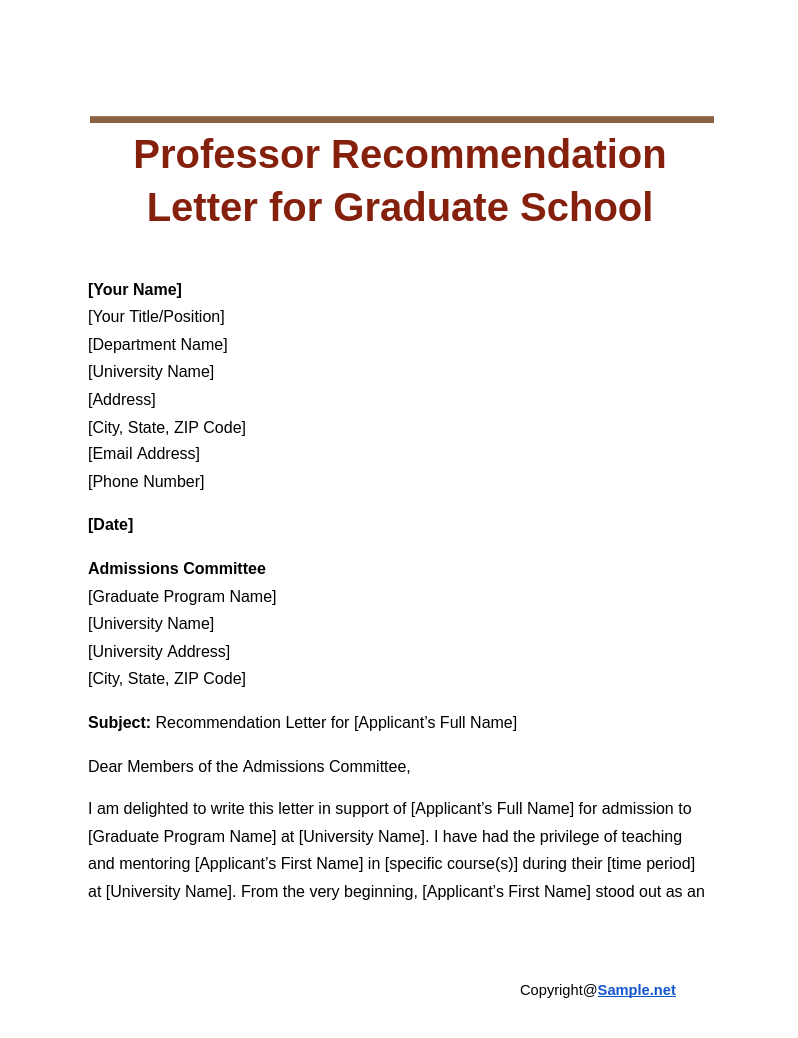
Professor Recommendation Letter for Graduate School
download now -
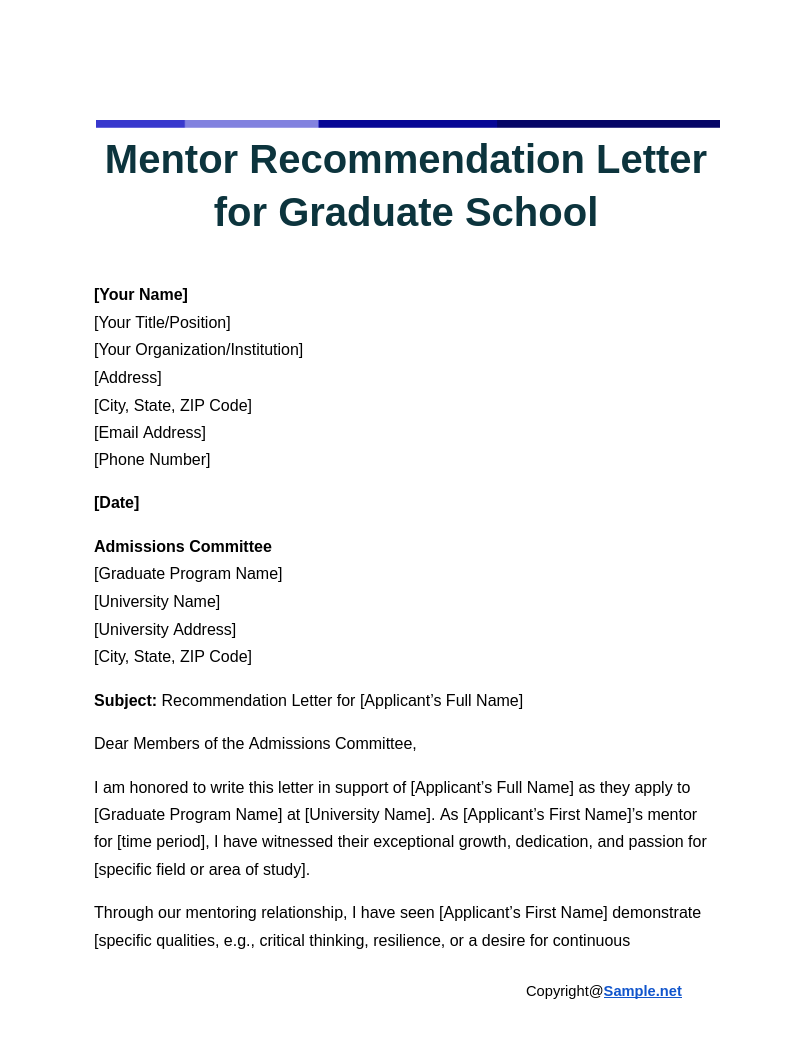
Mentor Recommendation Letter for Graduate School
download now -
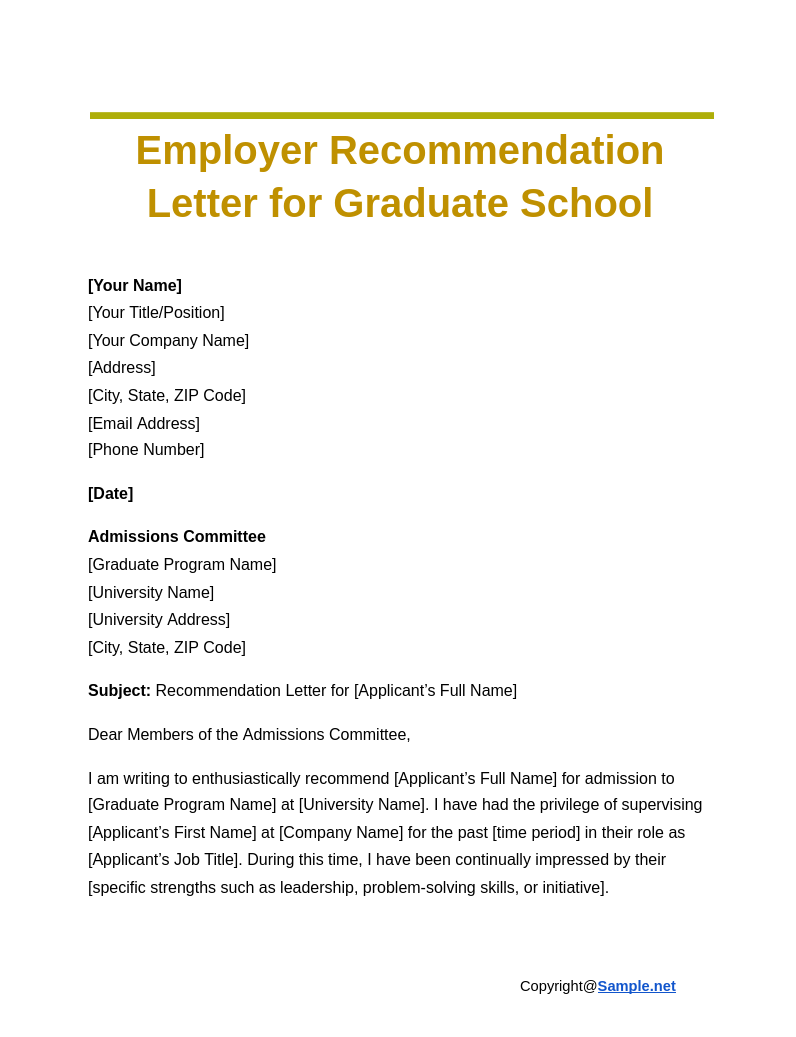
Employer Recommendation Letter for Graduate School
download now -
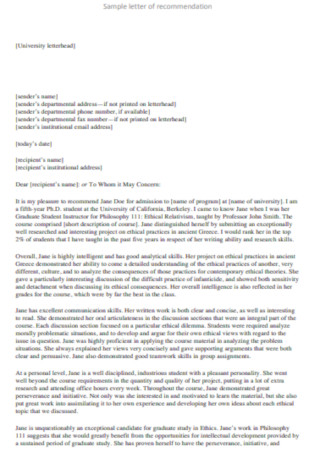
Sample Recommendation Letter for University Graduate School
download now -
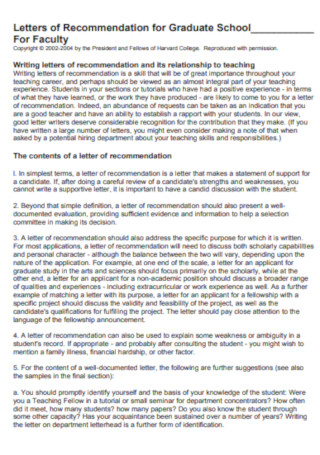
Letters of Recommendation for Graduate School Faculty Template
download now -
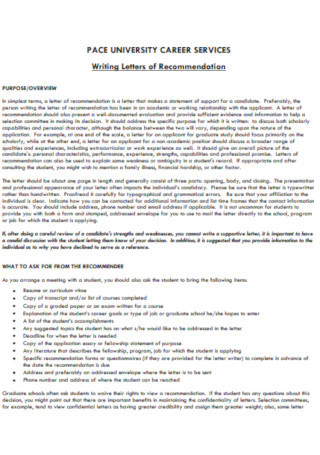
University Career Service Recommendation Letter
download now -
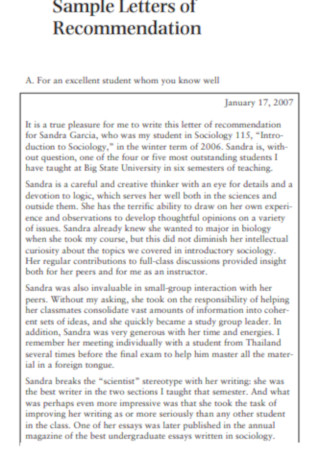
Simple Recommendation Letter for Graduate School
download now -
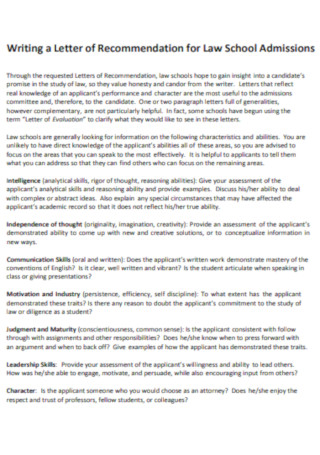
Letter of Recommendation for Law School Admissions
download now -
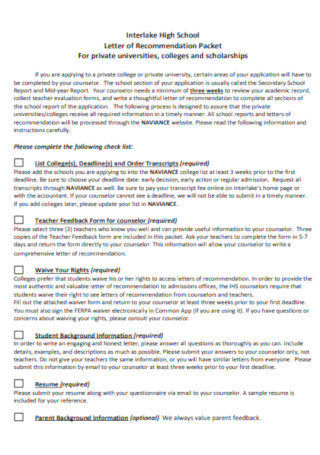
Colleges and Scholarships Letter of Recommendation
download now -
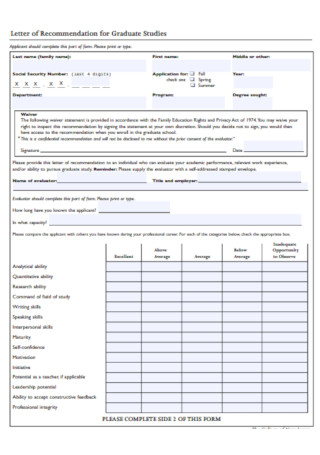
Letter of Recommendation for Graduate Studies
download now -
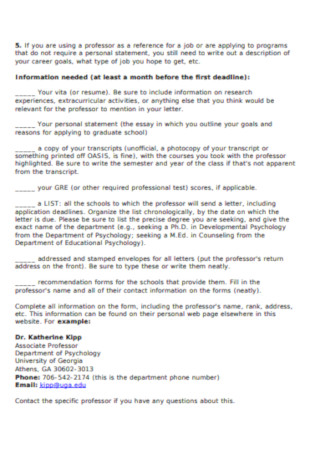
Basic Recommendation Letters for Graduate School
download now -
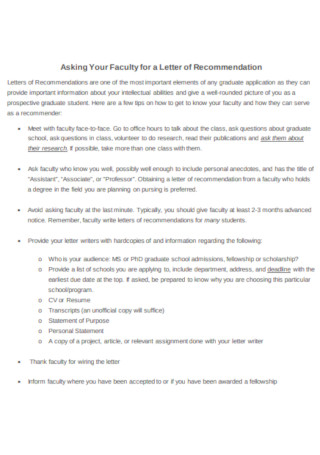
Graduate Division Faculty for a Letter of Recommendation
download now -
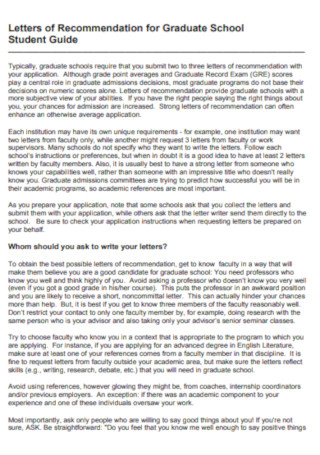
Letters of Recommendation for Graduate School Student Template
download now -
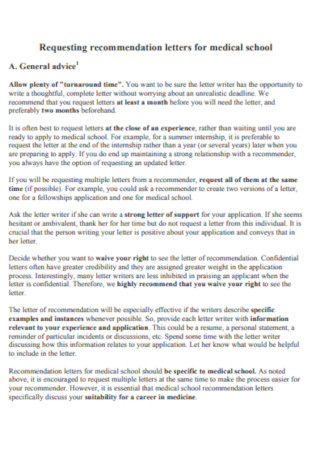
Requesting Recommendation Letters for Medical School
download now -
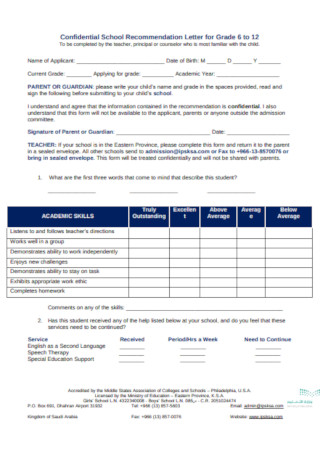
Confidential School Recommendation Letter for Grade Template
download now -
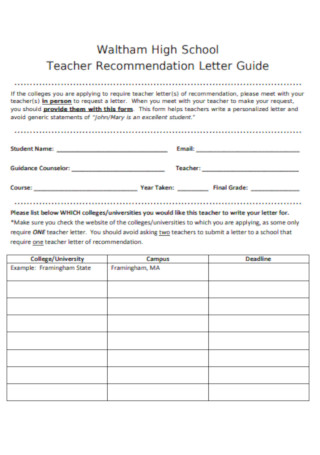
High School Teacher Recommendation Letter
download now -
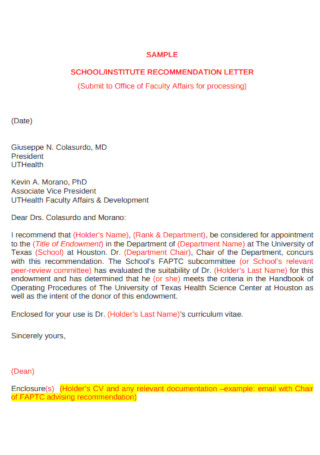
Sample School and Institute Recommendation Letter Template
download now -
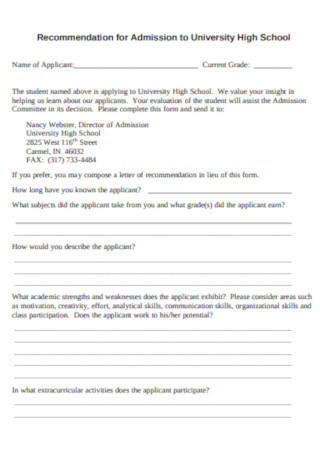
Recommendation for Admission to University High School
download now -
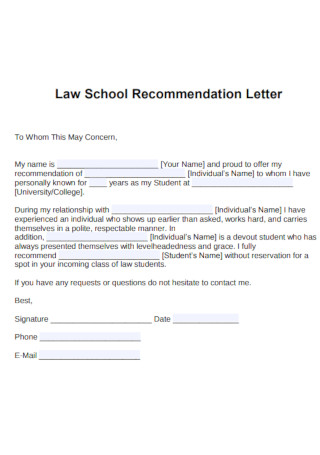
Law School Recommendation Letter
download now -
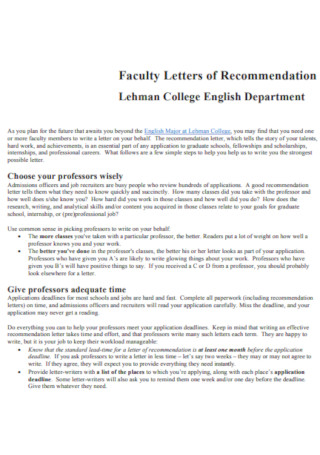
College Faculty Letters of Recommendation Template
download now -
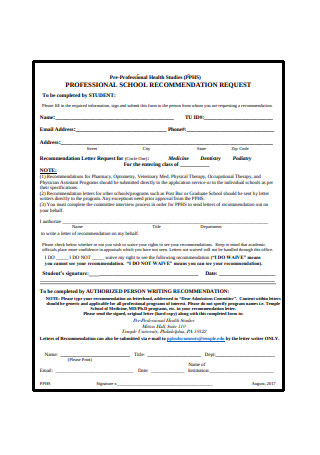
Professional Recommendation Letter for Graduate School
download now -
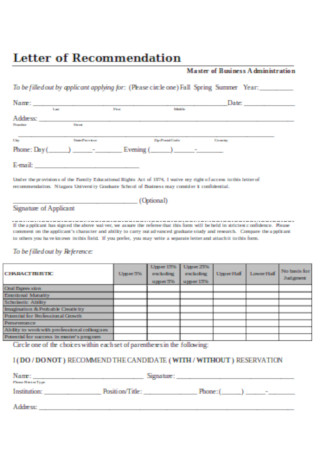
University of Education Recommendation Letter
download now
FREE Recommendation Letter for Graduate School s to Download
Recommendation Letter for Graduate School Format
Recommendation Letter for Graduate School Samples
What is a Recommendation Letter for Graduate School?
Benefits of Recommendation Letter for Graduate School
Tips to Request a Recommendation Letter for Graduate School
How to Write a Letter of Recommendation for Graduate School
FAQs
How do you write a strong letter of recommendation?
How do I choose my recommenders for graduate school?
What Is the Best Introduction for Recommendation?
What if the recommender doesn’t know the applicant well?
What makes a recommendation letter stand out?
How do admissions committees evaluate recommendation letters?
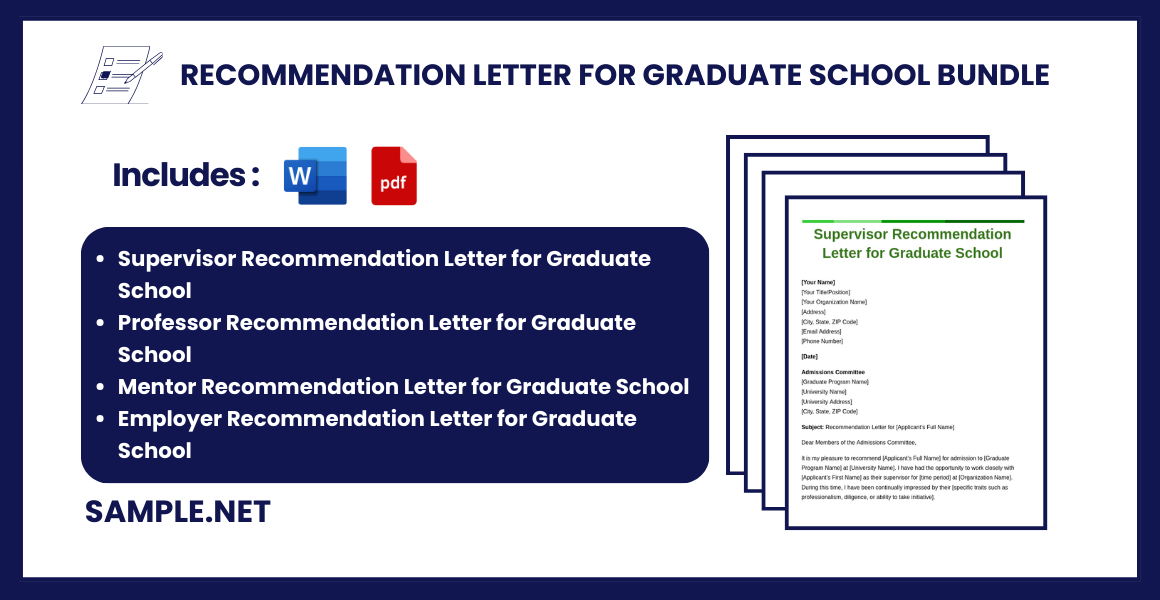
Download Recommendation Letter for Graduate School Bundle
Recommendation Letter for Graduate School Format
[Your Name]
[Your Title/Position]
[Your Organization/Institution]
[Address]
[City, State, ZIP Code]
[Email Address]
[Phone Number]
[Date]
Admissions Committee
[Graduate Program Name]
[University Name]
[University Address]
[City, State, ZIP Code]
Subject: Recommendation Letter for [Applicant’s Full Name]
Dear Members of the Admissions Committee,
I am pleased to write this letter in support of [Applicant’s Full Name] and their application to [Graduate Program Name] at [University Name]. As [your relationship to the applicant, e.g., professor, supervisor, mentor] for [time period], I have had the privilege of observing [Applicant’s First Name]’s exceptional qualities, including [specific qualities such as intellectual curiosity, leadership skills, or commitment to excellence].
In my [number of years] of experience as [your position], I have rarely encountered a student/employee as [adjective: motivated, capable, dedicated] as [Applicant’s First Name]. [Provide specific example(s) demonstrating the applicant’s strengths, such as a project, class performance, or work accomplishment.]
Beyond their academic/professional achievements, [Applicant’s First Name] has consistently demonstrated [soft skills, e.g., collaboration, communication, or problem-solving abilities]. For example, during [specific instance or project], they [describe the situation, action, and result]. This not only highlights their technical competence but also their ability to adapt and excel in challenging situations.
I am confident that [Applicant’s First Name] will bring the same level of [specific qualities] to your graduate program. Their [mention any unique traits or perspectives] will undoubtedly make them an asset to your academic community.
In conclusion, I strongly recommend [Applicant’s Full Name] for admission to [Graduate Program Name]. I am certain they will excel and contribute significantly to your institution. Please feel free to contact me at [email] or [phone number] if you require further information.
Thank you for considering my recommendation.
Sincerely,
[Your Full Name]
[Your Title/Position]
[Organization/Institution Name]
What is a Recommendation Letter for Graduate School?
A recommendation letter for graduate school endorses a candidate for admission to an advanced degree program. Its intended audience is the admissions committee at a college or university, and it can influence the committee’s admissions decision. Academic leaders, such as professors, deans, and academic advisors, can be among the professionals who write letters of recommendation. Supervisors can also serve as references by discussing a candidate’s qualifications in the workplace context. The contents of a letter of recommendation can bolster the candidate’s application materials. You can also see more on Professional Letter of Recommendation.
Benefits of Recommendation Letter for Graduate School

1. Adds Credibility to Your Application
A recommendation letter provides an external perspective on your achievements, lending credibility to your claims and strengthening your application.
2. Personalizes Your Profile
It offers a narrative that highlights your unique qualities, making your application more memorable and distinct from others.
3. Highlights Relevant Skills
Recommenders can emphasize specific skills and accomplishments that align with the graduate program’s requirements, showcasing your suitability. You can also see more on Job Letter of Recommendation.
4. Demonstrates Support and Trust
Having a letter from a respected professor, mentor, or employer indicates their confidence in your abilities, which reflects positively on you.
5. Strengthens Weak Areas
A strong recommendation can compensate for minor weaknesses in other areas of your application, such as a slightly lower GPA or limited experience.
6. Builds a Cohesive Application
When aligned with other application materials, the letter creates a comprehensive and compelling picture of your potential and aspirations.
7. Increases Admission Chances
A persuasive recommendation letter can make you stand out in a competitive applicant pool, increasing your likelihood of acceptance into the program. You can also see more on Student Letter of Recommendation.
8. Supports Scholarship Opportunities
Many scholarship committees also value recommendation letters, using them to assess candidates for financial awards or grants.
9. Reflects Interpersonal Skills
A glowing recommendation indicates strong relationships and interpersonal skills, which are often valued by graduate programs.
10. Provides Insight Beyond Grades
It offers insights into your personality, character, and work ethic, which grades and test scores cannot capture, presenting you as a well-rounded candidate. You can also see more on College Letter of Recommendation.
Tips to Request a Recommendation Letter for Graduate School
You should provide as much info about yourself as feasible so that those you ask can write comprehensive recommendation letters. The following stages will guide you in delivering your reference with the correct information to compose an outstanding letter:
1. Choose the Recipient of Your Correspondence
Most graduate programs need two to four letters of recommendation per application, with some requiring letters only from professors, employers, or both. Consider compiling a list of individuals with whom you interact closely in college or the workplace, such as a professor, research supervisor, internship director, or work supervisor. You may ask a few professors or an academic advisor to write your recommendation letters if you are an undergraduate. If you are no longer enrolled in college, you may request that your manager and a colleague write your letters. Consider also asking for recommendations from a volunteer organizer or club president.
2. Make a Formal Proposal
Before submitting a formal written request for a recommendation, it is a professional courtesy to speak with the individual. Ask your chosen reference in person if they are prepared to compose a letter of recommendation on your behalf. If it is not likely to meet in person, you can inquire over the phone or send a brief email before following up with additional information. Next, you must send an official request for a letter of recommendation via email. This maintains professional courtesy and gives them information to assist them in writing a recommendation. You can also see more on Internship Recommendation Letter.
3. Provide Information to the Writer
Requesting a recommendation letter from a professor or manager is an opportunity to demonstrate that you value their opinion of your abilities. You can also explain to your reference why you requested a recommendation from them. For instance, presume you have asked your accounting professor to write a recommendation letter for applying to the Master of Business Administration program. In this case, describe how their classes motivated you to pursue a graduate degree. Consider including specific examples of the advice they provided to demonstrate its significance.
4. Allow Time to Write the Letter
Inform your reference of the date you must submit the letter to satisfy the school’s application deadline. Give them sufficient time to consider your qualifications and compose a recommendation carefully. Submit your formal request as early as feasible, preferably one month before the application deadline. To give yourself ample time, you can give your reference a deadline for the letter of recommendation before the application deadline. Remember the number of responsibilities your reference currently has. If your coworker, manager, or professor is managing an increase in workload or is occupied with midterms or finals, giving them more than a month may be prudent.
5. Write a Letter of Gratitude
Consider penning each reference a letter of appreciation. This acknowledges the time the writer has taken from their busy schedule to support your pursuit of higher education and professional development plan. Thank them for their time and express appreciation for vouching for your qualifications. You can also inform them of your graduate program acceptance and future intentions. This additional gesture is a professional courtesy that will likely strengthen your relationship with the reference, which can be advantageous if you need their recommendation again.
How to Write a Letter of Recommendation for Graduate School
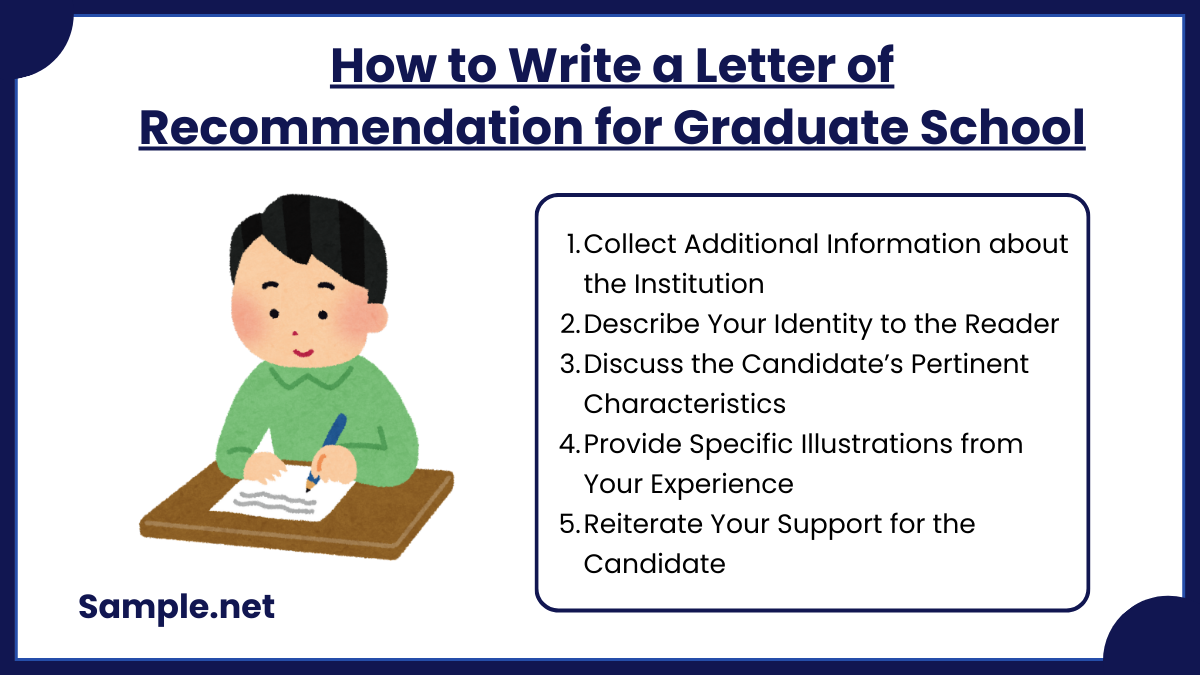
You have chosen graduate school as the next stage in your career progression. No matter what form of program you intend to register in, you will be required to submit letters of recommendation for admission. You’ve been here before. When applying to college, you requested recommendation letters from your high school instructors, advisors, and coaches. But how are graduate school recommendation letters different? What do you require to know to set your finest foot forward and enhance your chances of admission to graduate school? Consider the purpose of your graduate school recommendation letters. You can also see more on Scholarship Letter of Recommendation. Follow these steps to compose a compelling letter of recommendation for a prospective student applying to graduate school:
1. Collect Additional Information about the Institution
The academic institution may have specific letter of recommendation submission requirements. For instance, you may be required to limit your letter to one page or submit it by a particular date—request information from the candidate regarding the school’s application procedure. You can decide when to write the letter and ensure you adhere to the instructions so the student remains qualified. Also, it may be beneficial to request additional candidate information. Request an updated copy of their resume, portfolio sample, and transcript to learn about their accomplishments. Consider researching the degree program, including its curriculum and admission requirements, to be inspired to write about the candidate’s compatibility. For example, if a student hopes to pursue a master’s degree in public relations, the institution may require a high GPA for admission forms. In your letter of recommendation, you can mention the student’s outstanding performance in the public relations courses you taught.
2. Describe Your Identity to the Reader
The first portion of your letter introduces yourself and explains why you are writing to the university. Include a heading with your name, job title, phone number, and email address at the document’s start. The following line may contain a personalized opening salutation to a university representative. Explain in the first paragraph why you recommend the candidate for admission to the degree program. Describe your association with the applicant and the length of time you’ve known them. You may also concisely summarize the credentialing checklist that qualifies them for the position.
3. Discuss the Candidate’s Pertinent Characteristics
Use the substance of your letter of recommendation to convince the admissions committee to accept the student. Discuss pertinent characteristics, such as course grades, class participation, and skill demonstration. Utilize the candidate’s collected materials to guide the direction of your writing. To keep your letter concise, prioritize information pertinent to the degree program. For instance, if the prospect is pursuing a master’s degree in business administration, you could discuss their positive contributions to a company as an employee.
4. Provide Specific Illustrations from Your Experience
Specific examples can increase the candidate’s credibility in your eyes. You can enable the reader to visualize the skill set a pupil with an advanced degree can utilize. Recall instances in which the candidate exhibited academic distinction or quality work performance. You can describe a time when you witnessed the candidate acquire a new skill or surmount a challenge, demonstrating their ability to adapt and meet deadlines in a rigorous curriculum. Consider providing examples showing personal values that align with the university’s requirements. For instance, if the school is looking for dedicated students, you can describe a time when candidates devoted themselves to achieving their objectives. Collaboration is also essential for program success; therefore, you may include instances where the student mentored a classmate or participated in a productive group project. Your recommendation letter can be more engaging with a story about the candidate. You can also see more on Paralegal Letters of Recommendation.
5. Reiterate Your Support for the Candidate
Dedicate the final paragraph of your letter of recommendation to a powerful conclusion. Accentuate your support for the candidate’s desire to continue their education and state that you believe they would aid the program. Additionally, you can praise the school representative for reading the letter.
A strong recommendation letter for graduate school plays a pivotal role in an applicant’s success by providing valuable insights into their abilities, character, and potential. Tailored and well-articulated, such letters complement the application by offering a personal perspective that goes beyond grades and test scores. When thoughtfully crafted, they significantly enhance an applicant’s chances of standing out in a competitive admissions process, demonstrating their readiness and suitability for advanced academic pursuits. You can also see more on Teacher Recommendation Letters.
FAQs
How do you write a strong letter of recommendation?
Choose precise, powerful adjectives over vague terms or tropes. Consider what the reader of the letter might want to know. Include information and insight that sometimes appears on a resume or application. Your letter should introduce the recipient to the individual you are recommending.
How do I choose my recommenders for graduate school?
A more academic program may request two educational and professional recommendations. In addition to being a professor, other potential recommenders include the lead researcher of a project you worked on or the manager of a non-profit organization where you routinely volunteer. You can also see more on Job Reference Letter.
What Is the Best Introduction for Recommendation?
In the first paragraph of a letter of recommendation, you should introduce yourself. Indicate who you are recommending and for what role. Include any personal, professional, or academic experience that helps establish your credibility and how you know the candidate.
What if the recommender doesn’t know the applicant well?
If a recommender doesn’t know the applicant well, they should focus on the strengths they can speak about. The applicant should provide relevant information to aid the letter’s development. You can also see more on Fraternity Letters of Recommendation.
What makes a recommendation letter stand out?
A recommendation letter stands out when it includes specific examples, demonstrates a deep understanding of the applicant’s skills, and aligns them with the program’s goals. Authenticity and a positive tone are key.
How do admissions committees evaluate recommendation letters?
Admissions committees assess recommendation letters based on the recommender’s credibility, the specificity of examples, and how well the letter aligns with the program’s focus and values. You can also see more on Reference Letter.
